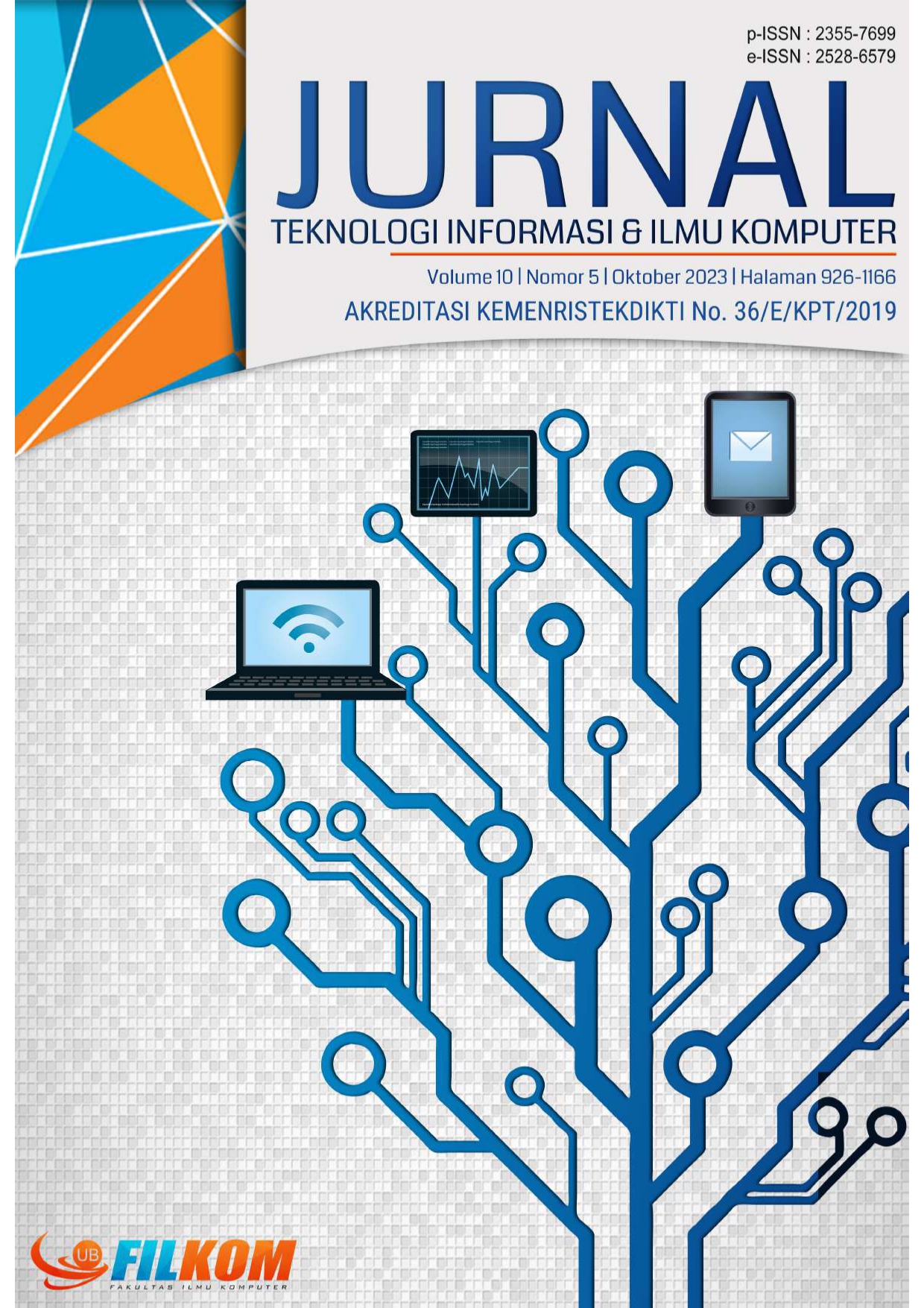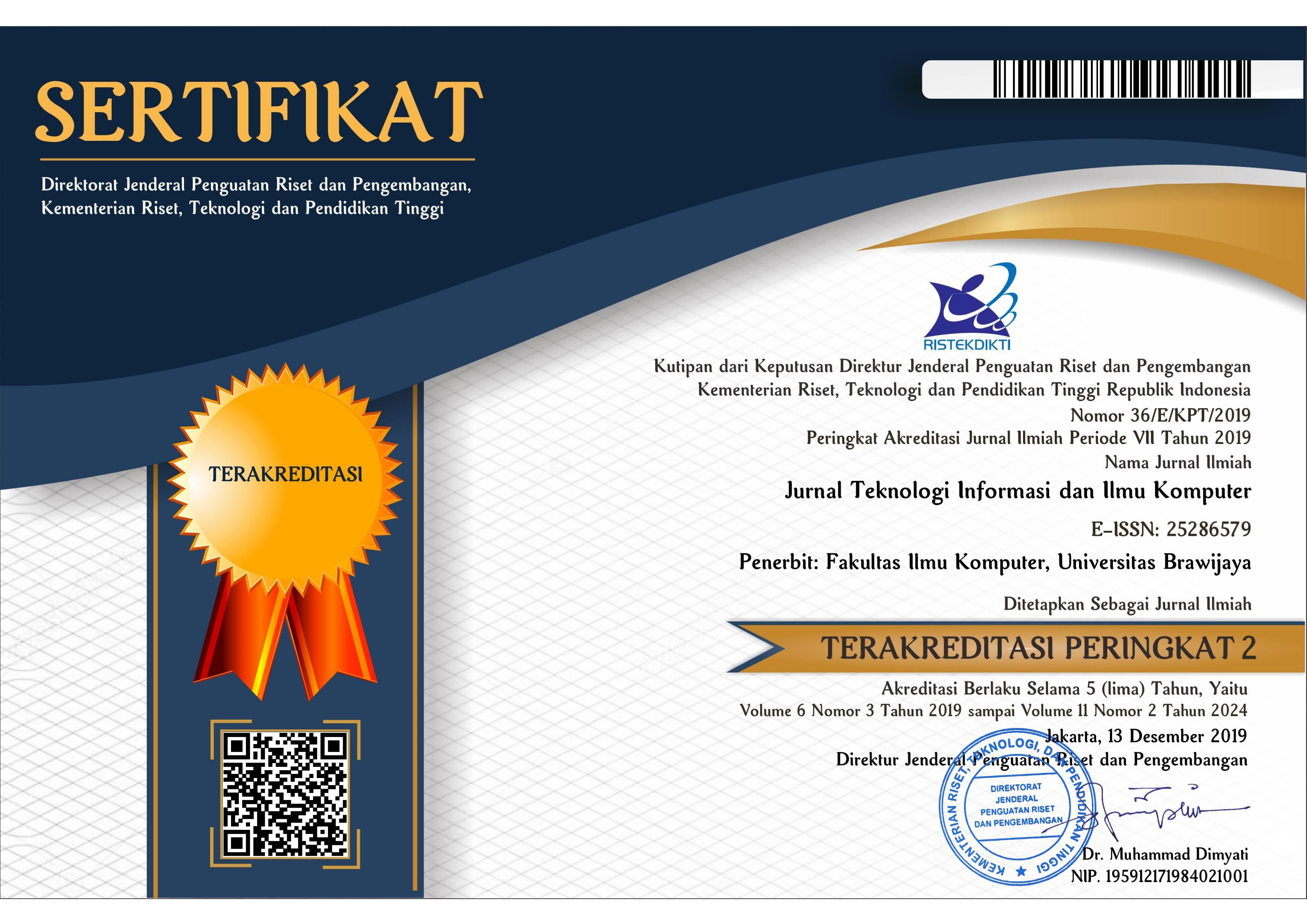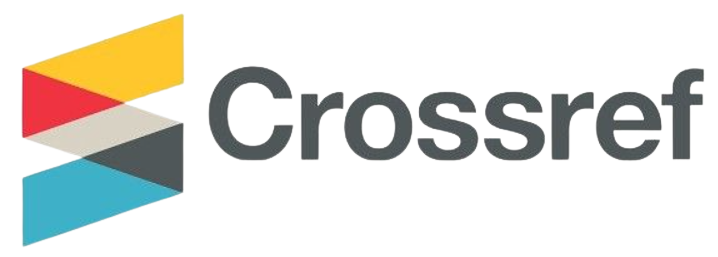Prediksi Tipe Kepribadian MBTI Artis K-Pop Berdasarkan Caption Instagram Menggunakan Word2Vec dan Long-Short Term Memory (LSTM)
DOI:
https://doi.org/10.25126/jtiik.2023107064Abstrak
Myers-Briggs Type Indicator (MBTI) adalah metode pengujian psikologi yang membedakan kepribadian seseorang. MBTI termasuk pembagian tipe kepribadian yang paling populer di dunia, termasuk di Korea Selatan. Tren MBTI di Korea Selatan juga dimanfaatkan oleh para artis K-Pop untuk berbagi tipe MBTI sehingga bisa mendekatkan hubungan antara penggemar dan idolanya. Salah satu media sosial yang umum digunakan oleh artis K-Pop adalah Instagram. Penelitian ini mencoba membuat model klasikasi tipe kepribadian berdasarkan caption Instagram artis K-Pop menggunakan Word2Vec dan Long-Short Term Memory (LSTM). Terdapat 118.401 data caption yang sudah dibersihkan melalui serangkaian langkah pre-processing dari 458 artis. Distribusi tipe kepribadian menunjukkan bahwa target tidak seimbang sehingga perlu dilakukan penanganan yaitu penggeseran threshold yang dilakukan pasca pemodelan. Evaluasi kombinasi model menghasilkan nilai macro f1 0,65 pada data artis, dengan rincian model Extroversion-Introversion, Sensing-Intuition, Thinking-Feeling memiliki nilai macro f1 yang sama yaitu 0,88, sedangkan model Judging-Perceiving memiliki nilai macro f1 yang sedikit lebih baik yaitu 0,90. Model diimplementasikan dalam aplikasi web Streamlit agar penggemar K-Pop dapat menggunakannya untuk memprediksi tipe MBTI dengan masukan caption Instagram. Aplikasi web dievaluasi menggunakan kuesioner System Usability Scale (SUS) dan mendapatkan skor 84,55 sehingga sudah termasuk kategori acceptable.
Abstract
Myers-Briggs Type Indicator (MBTI) is a psychological test that distinguishes a person's personality. The MBTI is one of the most popular personality types in the world, including South Korea. The MBTI trend in South Korea is also used by K-Pop artists to share their MBTI types so they could be closer to their fans. One of the social media commonly used by K-Pop artists is Instagram. This study tries to develop a personality type classification model based on Instagram captions of K-Pop artists using Word2Vec and Long-Short Term Memory (LSTM). There are 118,401 caption data that have been cleaned through a series of pre-processing steps from 458 artists. The distribution of personality types shows that the target is not balanced, so it is necessary to handle imbalanced data, namely shifting the threshold after modeling. Evaluation of the combination model yields a macro f1 value of 0.65 in the artist data, with the details of the Extroversion-Introversion, Sensing-Intuition, Thinking-Feeling models having the same macro f1 value of 0.88, while the Judging-Perceiving model has a slightly better macro f1 value of 0.90. The model is deployed in the Streamlit web application so that K-Pop fans can use it to predict the MBTI type by inputting Instagram captions. The web application is evaluated using the System Usability Scale (SUS) questionnaire and gets a score of 84.55 so it is considered acceptable.
Downloads
Referensi
AMIRHOSSEINI, M. H. & KAZEMIAN, H., 2020. Machine Learning Approach to Personality Type Prediction Based on the Myers–Briggs Type Indicator. Multimodal Technologies and Interaction, 4(9).
CELLI, F. & LEPRI, B., 2018. Is Big Five better than MBTI? A personality computing challenge using Twitter data. Computational Linguistics CLiC-it 2018.
CHOONG, E. J. & VARATHAN, K. D., 2021. Predicting judging-perceiving of Myers-Briggs Type Indicator (MBTI) in online social forum. PeerJ, 9(e11382), pp. 1-27.
DONAHUE, J. dkk., 2017. Long-Term Recurrent Convolutional Networks for Visual Recognition and Description. IEEE TRANSACTIONS ON PATTERN ANALYSIS AND MACHINE INTELLIGENCE, 39(4), pp. 677-691.
EPENDI, U., KURNIAWAN, T. B. & PANJAITAN, F., 2019. System usability scale vs heuristic evaluation: a review. Simetris: Jurnal Teknik Mesin, Elektro dan Ilmu Komputer, 10(1), pp. 65-74.
HARAHAP, R. N. & MUSLIM, K., 2020. Peningkatan Akurasi Pada Prediksi Kepribadian MBTI Pengguna Twitter Menggunakan Augmentasi Data. Jurnal Teknologi Informasi dan Ilmu Komputer (JTIIK), 7(4), pp. 815-822.
HERLAMBANG, A. D. & WIJOYO, S. H., 2019. Algoritma Naive Bayes untuk Klasifikasi Sumber Belajar Berbasis Teks pada Mata Pelajaran Produktif di SMK Rumpun Teknologi Informasi dan Komunikasi. Jurnal Teknologi Informasi Dan Ilmu Komputer, 6(4), pp. 430-435.
HERLAMBANG, A. D., WIJOYO, S. H. & RACHMADI, A., 2019. Intelligent Computing System to Predict Vocational High School Student Learning Achievement Using Naive Bayes Algorithm. Journal of Information Technology and Computer Science, 4(1), pp. 15-25.
KEH, S. S. & I-TSUN, C., 2019. Myers-Briggs Personality Classification and Personality-Specific Language Generation Using Pre-trained Language Models. arXiv preprint arXiv:1907.06333.
KERWIN, P. L., 2018. Creating clarity: addressing misconceptions about the MBTI assessment.
KRÜGER, F., 2016. Activity, Context, and Plan Recognition with Computational Causal Behaviour Models. Rostock: University of Rostock.
MANALU, B. U., TULUS & EFENDI, S., 2020. Deep Learning Performance In Sentiment Analysis. 2020 4th International Conference on Electrical, Telecommunication and Computer Engineering (ELTICOM), pp. 97-102.
MUHAMMAD, P. F., KUSUMANINGRUM, R. & WIBOWO, A., 2021. Sentiment Analysis Using Word2vec And Long Short-Term Memory (LSTM) For Indonesian Hotel Reviews. Procedia Computer Science, Volume 179, pp. 728-735.
REDHUM, S., SRIVASTAVA, S., BANSAL, B. & GUPTA, G., 2018. Sentiment Analysis Using Text Mining: A Review. International Journal on Data Science and Technology, 4(2), pp. 49-53.
SIVAKUMAR, S. dkk., 2020. Review on Word2Vec Word Embedding Neural Net. 2020 International Conference on Smart Electronics and Communication (ICOSEC), pp. 282-290.
WICAKSONO, A. H. dkk., 2022. Klasifikasi Siswa Slow Learner untuk Mendukung Sekolah dalam Meningkatkan Pemahaman Siswa Menggunakan Algoritma Naive Bayes. Jurnal Teknologi Informasi dan Ilmu Komputer, 9(3), pp. 589-596.
WIDAYAT, W., 2021. Analisis Sentimen Movie Review menggunakan Word2Vec dan metode LSTM Deep Learning. Jurnal Media Informatika Budidarma, 5(3), pp. 1018-1026.
YEUNG, J. & SEO, Y., 2022. MBTI: How South Koreans fell in love with an American World War II era personality test. [Online]
Available at: https://edition.cnn.com/2022/07/22/asia/south-korea-mbti-personality-test-dating-briggs-myers-intl-hnk-dst/index.html
[Accessed 15 August 2022].
ZHOU, Z.-H. & LIU, X.-Y., 2006. Training cost-sensitive neural networks with methods addressing the class imbalance problem. IEEE Transactions on Knowledge and Data Engineering, 18(1), pp. 63-77.
Unduhan
Diterbitkan
Terbitan
Bagian
Lisensi
Hak Cipta (c) 2023 Jurnal Teknologi Informasi dan Ilmu Komputer

Artikel ini berlisensiCreative Commons Attribution-ShareAlike 4.0 International License.

Artikel ini berlisensi Creative Common Attribution-ShareAlike 4.0 International (CC BY-SA 4.0)
Penulis yang menerbitkan di jurnal ini menyetujui ketentuan berikut:
- Penulis menyimpan hak cipta dan memberikan jurnal hak penerbitan pertama naskah secara simultan dengan lisensi di bawah Creative Common Attribution-ShareAlike 4.0 International (CC BY-SA 4.0) yang mengizinkan orang lain untuk berbagi pekerjaan dengan sebuah pernyataan kepenulisan pekerjaan dan penerbitan awal di jurnal ini.
- Penulis bisa memasukkan ke dalam penyusunan kontraktual tambahan terpisah untuk distribusi non ekslusif versi kaya terbitan jurnal (contoh: mempostingnya ke repositori institusional atau menerbitkannya dalam sebuah buku), dengan pengakuan penerbitan awalnya di jurnal ini.
- Penulis diizinkan dan didorong untuk mem-posting karya mereka online (contoh: di repositori institusional atau di website mereka) sebelum dan selama proses penyerahan, karena dapat mengarahkan ke pertukaran produktif, seperti halnya sitiran yang lebih awal dan lebih hebat dari karya yang diterbitkan. (Lihat Efek Akses Terbuka).














